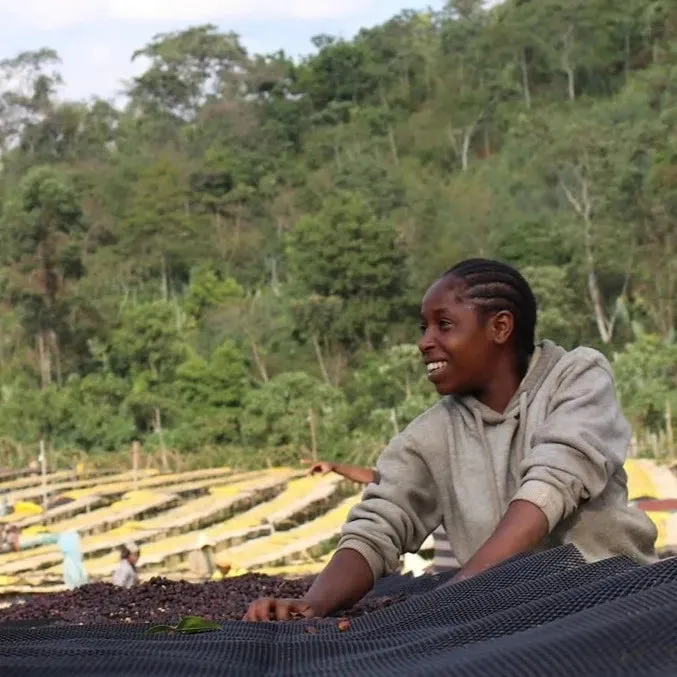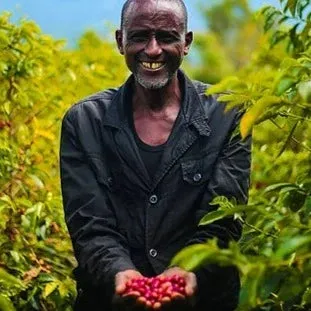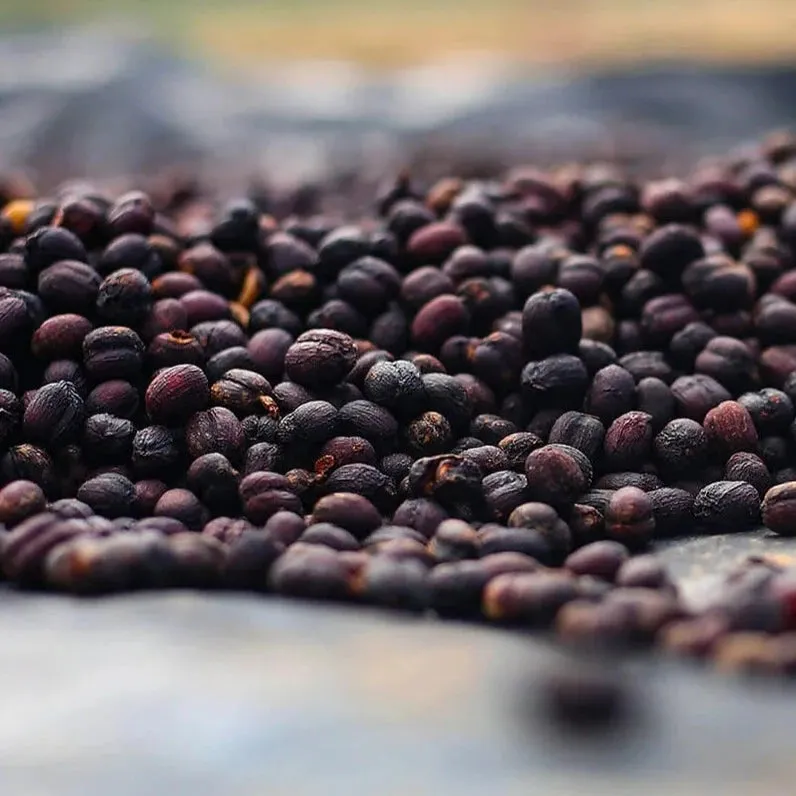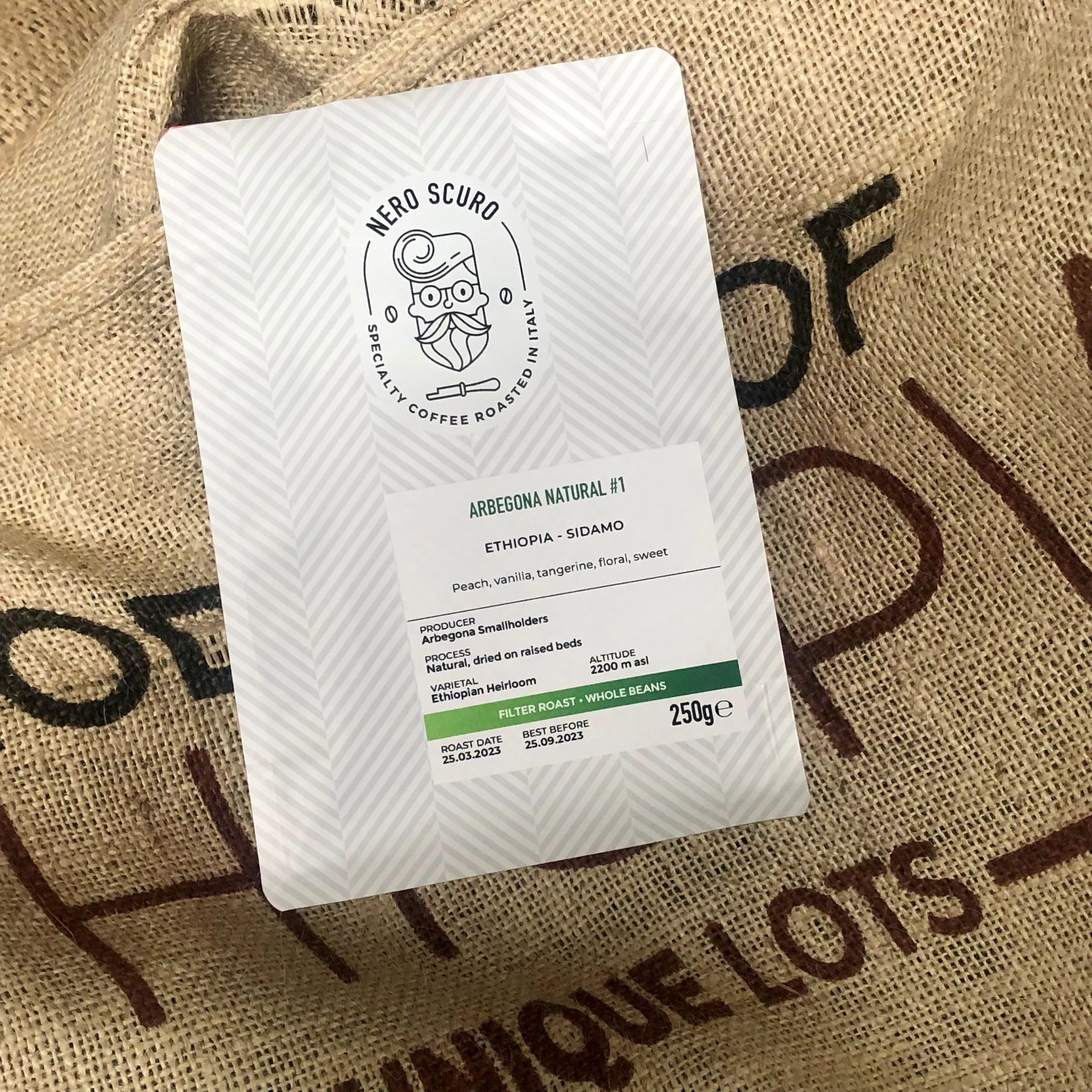This gem comes from the highland area of Arbegona, where it is cultivated by smallholder farmers on small plots ranging from 3-5 hectares. The region benefits from an altitude of 2200 masl, and the coffee is processed at the washing station of the same name.
The production in the region is primarily centered around coffee, which serves as the primary cash crop. However, other crops such as sugar cane, false banana, spices, and vegetables are also grown in the area. The washing station also operates an out-growers program that benefits farmers with off-season payments in addition to the harvest fee. The program is committed to improving the living standards of farmers by providing them with access to healthcare, utilities, education, and transport infrastructure.
Ethiopia is considered the birthplace of coffee, with coffee production accounting for almost 10% of the country's gross domestic product. The region is home to an estimated thousands of previously undescribed coffee varieties, making it the most biodiverse region in the world for coffee. However, due to the historical traditions, political situation, and the way coffee is grown in Ethiopia, finding single variety lots is challenging. Therefore, this coffee is referred to as Ethiopian heirloom or indigenous varieties. Although this is gradually changing in recent years, as efforts are being made to identify and categorize the different coffee varieties grown in Ethiopia.
The coffee is processed naturally, with the cherries sorted based on quality and density by floating them in large water tanks. After flotation, the cherries are transferred to African raised beds with mesh nets, where they are rotated every 30 minutes for even drying and to regulate the fermentation process. The drying process takes around 12-15 days, depending on the temperature and humidity, before the dried cherries are moved to storage where their flavor begins to develop.
In the cup: peach, vanilla, floral, tangerine, syrupy. Long sweet and fruity aftertaste.
Resting period: at least 10 days from the roast date for espresso roast, at least 5 days for filter roast.



















